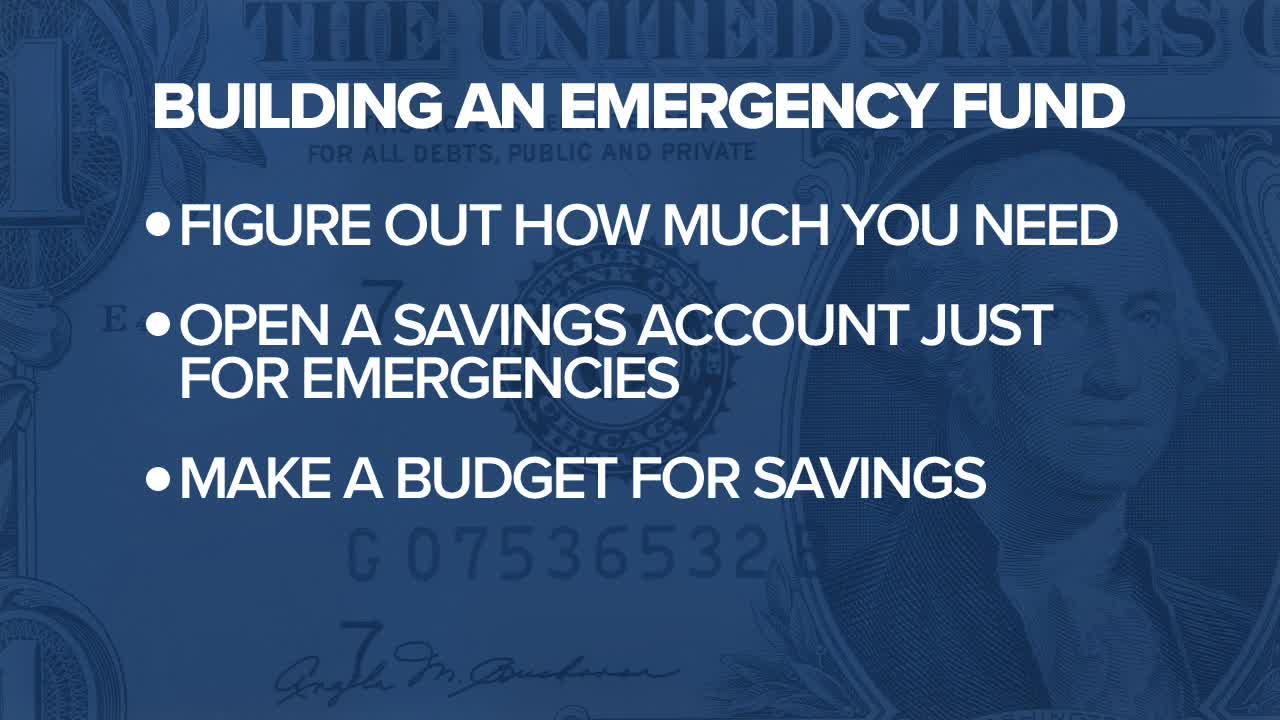A new Bankrate survey reveals that fewer than half of Americans have enough emergency savings to cover three months of expenses, despite financial experts recommending a cushion of three to six months as a financial lifeline.
Although 1 in 3 Americans had to tap into their emergency funds in the past year, the majority still don't have adequate savings, according to the annual Bankrate Yearly Emergency Savings Report.
In Peoria, Arizona, Kathryn and Matthew Langenbach know firsthand the importance of having emergency savings. Their 3-year-old son, John, has cystic fibrosis and other complications that create ongoing medical expenses.
"He's the reason that we have to save money, and he's the reason that it's hard to save money," Kathryn Langenbach said.
While Medicaid covered their son's $3 million NICU bill, the family still faces regular medical expenses that require dipping into their emergency fund.
"I'd say the only time we really dip in is when emergencies happen, which can be frequent, when you have a kid with a lot of medical needs," Matthew Langenbach said.
David Navarret also relied on emergency savings after a crash last year left his car totaled and his leg broken.
"I did have insurance, medical insurance. But they don't give the money to the hospitals right away. So I had to do a lot of payments," Navarret said.
Many Americans are finding it increasingly difficult to build savings due to rising costs of living.
Lawrence Brooks, a consumer from Tempe, Arizona, highlighted the challenge of high housing costs.
"It's difficult for just, you know, an everyday person," Brooks said. "Rent today costs like $1,500. Just that alone takes two jobs.”
According to Bankrate's poll, 68% of Americans are saving less for emergency expenses, up 5% from last year.
"The single biggest obstacle to building up that emergency savings in 2025 is inflation and high prices," Greg McBride, Bankrate Chief Financial Analyst, said.
How to build emergency savings
McBride recommends consistent savings habits over years to overcome these challenges. He offers a three-step approach:
- Calculate how much you need in an emergency fund
- Open a dedicated savings account specifically for emergencies
- Create a budget for savings with automatic transfers
"If you have that money in something like an online savings account, you can be earning very attractive interest. Interest rates are above that of inflation," McBride said.
He also emphasizes that people can work on multiple financial goals simultaneously, rather than waiting to start saving.
"The problem with waiting to start saving until, say, the debt is paid off, is that oftentimes, it takes a lot longer to pay off that debt, if you do pay it off at all, and in the meantime, you're losing years of valuable compounding," McBride said.
For the Langenbach family, having emergency savings provides crucial peace of mind when it comes to their son's health needs.
"You have to have something, because life happens,” Kathryn Langenbach said. “We would have been in some really hot spots if we didn't have some reserve to dip into.”
This story was reported on-air by Jane Caffrey at the Scripps News Group station in Phoenix and has been converted to this platform with the assistance of AI. Our editorial team verifies all reporting on all platforms for fairness and accuracy.




